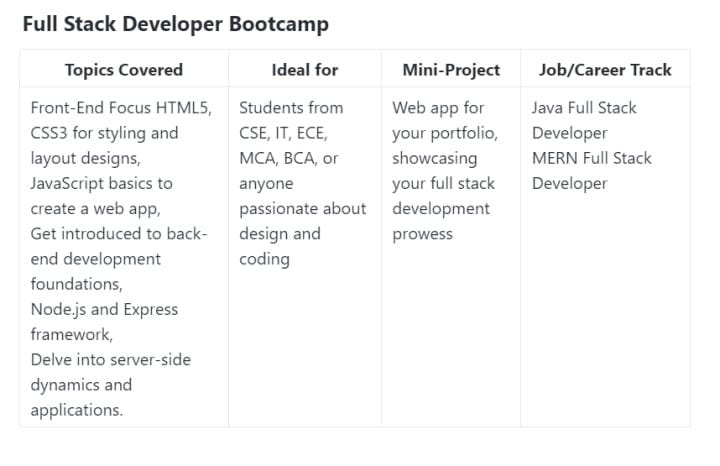Java is considered one of the most vital programming languages due to its simplicity and vast potential for development. Consequently, Java has become the predominant language in the industry, with employers consistently seeking candidates with Java certification. Let us discover ten compelling reasons why mastering this Java programming language can give you a significant edge in today’s competitive job market.
1. Popularity of Java
The popularity of Java is not simply a passing trend but rather a long-lasting and enduring phenomenon. According to the TIOBE Index, which measures the popularity of programming languages, Java consistently ranks among the top programming languages. The reason for its sustained popularity is its remarkable versatility. As an all-encompassing language, Java is used in multiple domains, from web development and mobile app creation to enterprise solutions and embedded systems.
The popularity of Java programming over the years (Source: TIOBE)
The high demand for Java developers naturally leads to competitive salaries. In India, a skilled Java developer can command an annual salary ranging from ₹2.4 lakhs to ₹14.3 lakhs, with an average salary of approximately ₹5.5 lakhs. In the United States, the average annual salary for a Full Stack Developer is around $119,828. Learning Java opens doors to a wealth of job opportunities that come with rewarding financial compensation.
2. Object-Oriented Programming Language
Java is known for its object-oriented nature. It encourages developers to think in terms of objects, which are instances of classes, and to leverage the principles of encapsulation, inheritance, and polymorphism. Object-oriented programming (OOP) simplifies code organization and maintenance, making it more manageable and less prone to errors. As a Java developer, you’ll harness the power of OOP to design and build clean, modular, and scalable code.
Furthermore, Java’s versatility extends beyond its portability. It can be used for a wide range of applications, including web and mobile app development, game development, scientific applications, and more. This adaptability is why Java has become the lingua franca of programming languages.
3. Java is Portable and Versatile
Java’s “Write Once, Run Anywhere” (WORA) capability is one of its standout features. This portability is achieved through the use of the Java Virtual Machine (JVM), which allows Java programs to run on various platforms without modification. This means that the code you write on one platform can seamlessly run on another, be it Windows, macOS, or Linux. Java’s platform independence makes it a practical choice for a developer who wants to reach a broad audience with their software.
4. Java is Easy and Open Source
Despite its power and versatility, Java remains a beginner-friendly language. Its syntax is easy to learn and understand, making it accessible to new programmers. Additionally, Java is an open-source language, which means that the Java Development Kit (JDK) is freely available. This openness encourages collaboration, innovation, and the creation of a vast array of libraries and frameworks.
5. Java’s New Features
Java has evolved continuously, introducing new features and enhancements with each version. By staying current with Java’s latest releases, you can leverage modern tools and language features to streamline your development processes. Some recent additions to Java include pattern matching, records, enhanced foreign functions, and memory access. These updates empower developers to write more concise and efficient code.
6. Java Applications
Java’s footprint in the world of applications is extensive. From front-end web applications using frameworks like Spring, Hibernate, and Struts to server-side solutions powered by Java EE (Enterprise Edition), the language offers an ideal platform for creating a diverse range of applications. Additionally, Java provides comprehensive libraries and frameworks that expedite the development of desktop, web, and mobile apps. In the era of IoT (Internet of Things), Java’s adaptability extends to embedded systems, making it a crucial language in this domain. List of sectors where Java is widely used:
- Web Development
- Mobile App Development
- Enterprise Software
- Financial Services
- Healthcare
- Gaming
- Embedded Systems
- Scientific and Research Applications
- Aerospace and Aviation
7. Java Development Tools
When it comes to tools and Integrated Development Environments (IDEs), Java developers are spoiled for choice. The Java ecosystem offers an array of robust, user-friendly development tools that streamline the coding process. Notable options include Eclipse, IntelliJ IDEA, and NetBeans. These tools come equipped with features such as code auto-completion, debugging, and performance analysis, which simplify the development workflow and enhance productivity.
8. Java’s Rich API and Wide Application Spectrum
Java’s supremacy extends beyond its beginner-friendly nature and adaptability. It thrives as the dominant language due to its extensive Application Programming Interfaces (APIs) and wide-reaching application potential.
Java boasts a versatile selection of APIs, simplifying the development process. It facilitates various domains, from web development with Spring, Hibernate, and Struts, to robust server-side solutions using Java EE (now Jakarta EE). Java EE serves as the cornerstone for enterprise-level applications, enabling web services, messaging systems, and database management.
Java’s dominance is due to its ability to support a wide range of applications. Whether it’s Android app development, fintech platforms, e-commerce solutions, or IoT ventures, Java’s rich API support provides the essential tools. By mastering Java and its comprehensive APIs, you gain a competitive edge in the ever-evolving programming landscape. Java’s reach and rich API ecosystem make it the dominant choice against its programming allies.
9. Community Support
As you start your journey to master Java, you’ll find an abundance of learning resources at your fingertips. Books, online courses, tutorials, forums, and documentation are readily available to help you grasp the language’s intricacies. Java’s thriving community is another invaluable asset. Whether you’re seeking answers to your coding dilemmas or looking to engage in discussions with fellow enthusiasts, the Java community offers a wealth of support and knowledge-sharing opportunities.
10. Demand: Java is Everywhere
Java’s omnipresence in the software development world is undeniable. It serves as the backbone of countless systems, from mobile devices to massive enterprise applications. This has resulted in a continuous and significant demand for Java developers. Whether you aspire to work on Android app development, fintech solutions, or e-commerce platforms, Java’s relevance is bound to be your passport to exciting job opportunities.
Java’s enduring popularity, high salary potential, portability, versatility, and extensive community support make it an ideal choice for both aspiring and experienced developers. With Java, you’ll unlock a world of career opportunities and the chance to work on a diverse range of projects. Whether you aim to develop Android apps, enterprise solutions, web applications, or embedded systems, Java equips you with the tools and knowledge needed to thrive in the dynamic world of software development.
Join Free Bootcamp at Datavalley
To take your skills to the next level and thrive in the tech industry, consider joining our bootcamp at Datavalley for Full Stack Java Developer training. It’s your gateway to success in this dynamic field. Don’t miss the chance to be a part of our vibrant community of learners and professionals. Your exciting future as a Full Stack Java Developer awaits!
Key points about Bootcamps:
- It is completely free, and there is no obligation to complete the entire course.
- 20 hours total, two hours daily for two weeks.
- Gain hands-on experience with tools and projects.
- Explore and decide if the field or career is right for you.
- Complete a mini-project.
- Earn a certificate to show on your profile.
- No commitment is required after bootcamp.
- Take another bootcamp if you are unsure about your track.



No comments yet